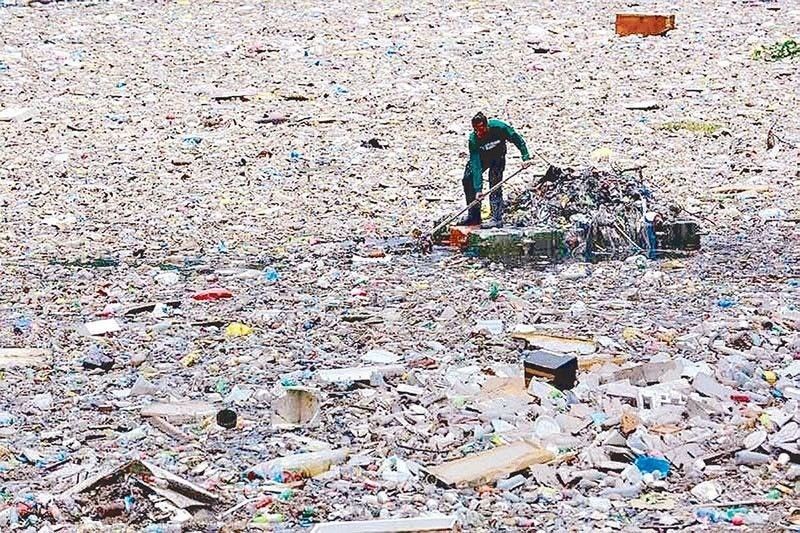DOST program to address Philippines plastic polluter tag

MANILA, Philippines — The Department of Science and Technology (DOST) will pursue an initiative to promote a circular, green and sustainable economy that will address the country’s notoriety as one of the world’s top plastic polluters especially of oceans.
Science Secretary Renato Solidum Jr. said the agency is now implementing their Science, Technology and Innovation for Circular Economy (STI4CE) initiative that actively supports research and development projects and efforts at adoption of sustainable plastic and packaging materials technologies by communities and industries.
“According to the SEA circular, an initiative from the UN Environment Programme and the Coordinating Body on the Seas of East Asia, the Philippines is one of the world’s worst offenders on marine plastic pollution, with 0.28 – 0.75 million tons per year of plastic entering oceans and coastal areas in Manila Bay,” Solidum said.
“This is a result of the limitations we see in a linear economy. For too long, our economic model has followed a linear trajectory of ‘take, make and dispose,’” Solidum said.
Under their STI4CE framework push, Solidum said that the DOST has already supported 53 R&D initiatives to advance the circular economy concept aimed at managing plastic waste generation in the country.
The DOST and corporate giant SM Investments Corp. have meanwhile forged a partnership to advance the development and adoption of sustainable plastic materials and improve plastic waste management strategies in the country.
DOST and SMIC agreed to collaborate on essential and sustainable plastic initiatives, including joint research and development, training programs and conferences.
“Being a responsible company is important to SM and plastics are a real sustainability issue for the country. We are keen to work with our many stakeholders to reduce plastics use in the Philippines. We always look for practical solutions,” Timothy Daniels, consultant for investor relations and sustainability, said.
The SM group, most notably its retail and mall teams, has been taking steps to reduce plastic use, recognizing that key contributors of plastic waste include bags at retail outlets, product packaging, as well as plastic water bottles and food packaging.
A standardized waste segregation policy called RDC (Recyclable, Disposable and Compostable) and a mall-wide campaign called Waste-Free Future are currently being implemented.
SM, through SM Prime Holdings, partnered with Japanese company GUUN to develop infrastructure for systematic waste management and resource recovery. This partnership will implement the Japanese technique of reducing landfill impact. The technology converts non-recyclable and hard-to-recycle packaging into alternative fuel.
- Latest
- Trending





























